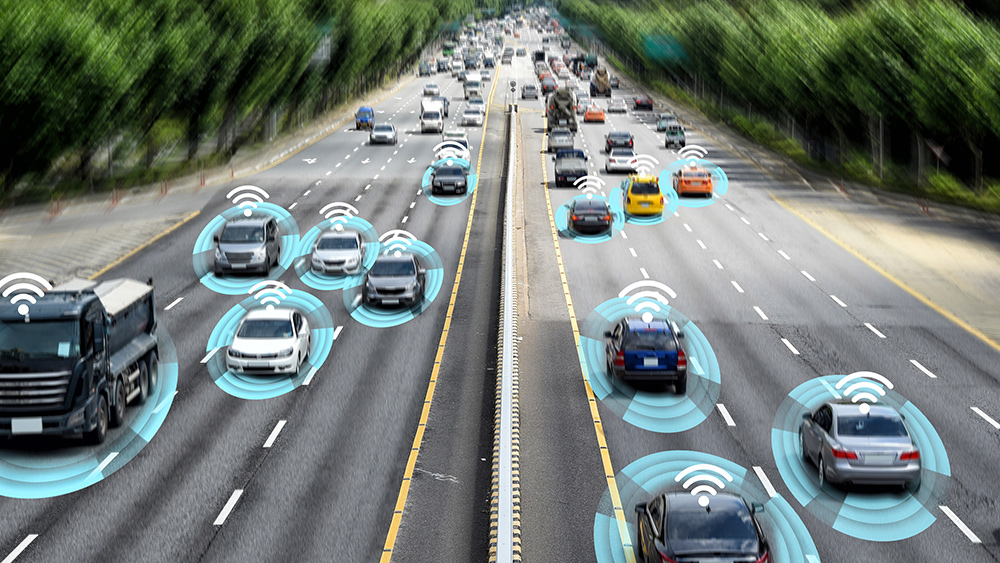The Future Of Autonomous Vehicles In Civil Engineering

Autonomous vehicles have become a hot topic in recent years, and for good reason. With the technological advancements that have been made in the automotive industry, there is now a real possibility of electric, autonomous vehicles becoming the norm on our roads. This would represent a huge shift in the way we think about transportation, and could have far-reaching implications for society at large.
So what exactly is an autonomous vehicle, and how do electric cars fit into the picture?
Put simply, an autonomous vehicle is a car that is capable of driving itself without the need for human intervention. This is achieved through a combination of sensors, cameras, and other technologies that allow the car to navigate its surroundings and make decisions about how to proceed on the road.
Electric cars, on the other hand, are powered by electricity rather than petrol or diesel. This means they produce zero emissions from the tailpipe, which is great news for the environment.
Combining these two technologies could have huge benefits for the future of transportation. For one thing, electric cars are much cheaper to run than petrol or diesel cars – they cost less to refuel, and require far less maintenance. This means that if we could make autonomous electric cars a reality, we could potentially have a much more efficient and cost-effective transport system.
But that's not the only benefit. Electric cars are also much quieter than traditional cars, which means that they could potentially make our cities much more pleasant places to be. In addition, they produce far fewer greenhouse gas emissions, which would be a major step forward in our fight against climate change.
So where are we at with the development of autonomous electric vehicles? The answer is: we're getting there, slowly but surely. There are already a number of companies that are working on developing fully autonomous electric cars, such as Google's Waymo and Tesla's Autopilot.
However, there are still a number of technical and regulatory hurdles that need to be overcome before these cars can become a reality on our roads. For example, there are concerns around how these cars will interact with human drivers, and how they will cope with adverse weather conditions.
Despite the challenges, however, there is no doubt that the future of autonomous electric cars is an exciting one. If we can overcome these obstacles, we could be looking at a much cleaner, more efficient, and more enjoyable transport system for all.
Frequently Asked Questions
Q: Will autonomous cars really be safer than human drivers?
A: The evidence suggests that autonomous cars could be much safer than human drivers, as they are not susceptible to human error. However, there are still a number of technical and regulatory challenges that need to be overcome before we can say for certain.
Q: How long will it take for autonomous electric cars to become a reality?
A: It's hard to say, as there are still a number of obstacles that need to be overcome. However, many experts predict that we could start to see these cars on our roads within the next decade or so.
Q: Will autonomous electric cars be affordable?
A: It's likely that these cars will initially be quite expensive, as the technology is still relatively new. However, as more and more companies start producing them, the price should start to come down over time.
Q: What will happen to jobs in the automotive industry if autonomous electric cars become the norm?
A: It's likely that there will be some job losses in the automotive industry if autonomous electric cars become the norm, as many of the jobs that currently exist in the industry will no longer be necessary. However, there will also be new jobs created in areas like software development and data analysis.
Q: How will autonomous electric cars impact the environment?
A: Autonomous electric cars have the potential to be much better for the environment than traditional cars, as they produce zero emissions from the tailpipe. This would be a major step forward in our efforts to combat climate change.
Q: Will we still need public transport if autonomous electric cars become the norm?
A: It's likely that we will still need public transport, as there will always be people who don't want to or can't afford to own a car. However, it's possible that there could be a shift towards more on-demand public transport services that are integrated with autonomous electric cars.
Q: What are some of the biggest challenges facing the development of autonomous electric cars?
A: Some of the biggest challenges include developing the technology to a point where it can operate safely and reliably without the need for human intervention, overcoming regulatory barriers, and adapting our infrastructure to support these cars.
Q: What are some of the potential benefits of autonomous electric cars?
A: Some potential benefits include reduced traffic congestion, cleaner air, and a more efficient and cost-effective transport system.
Q: How will autonomous electric cars impact the way we live and work?
A: It's likely that autonomous electric cars will have a major impact on the way we live and work, as they will change the way we think about transportation. For example, they could make it easier for people to live further away from their workplaces, as they would no longer need to worry about the time and cost of commuting.
Q: What role will governments play in the development of autonomous electric cars?
A: Governments will play a crucial role in the development of autonomous electric cars, as they can provide funding and regulatory support to help bring these cars to market. They can also work with industry stakeholders to address any technical or regulatory challenges that may arise.


Post a Comment for "The Future Of Autonomous Vehicles In Civil Engineering"